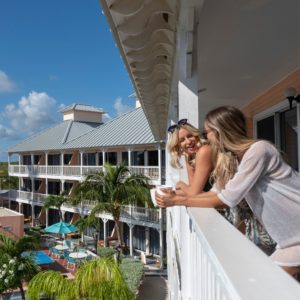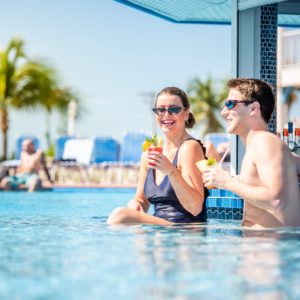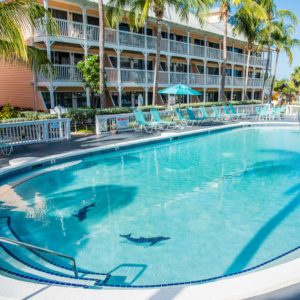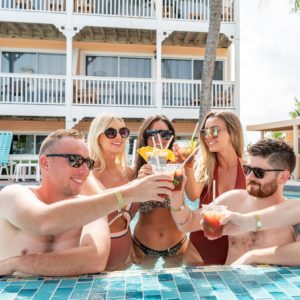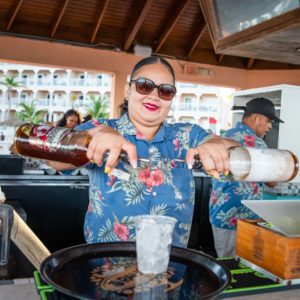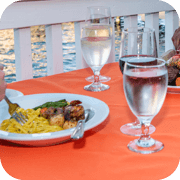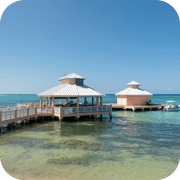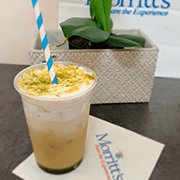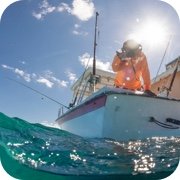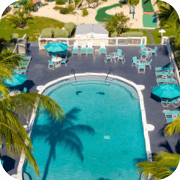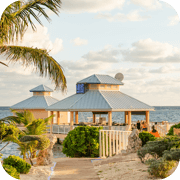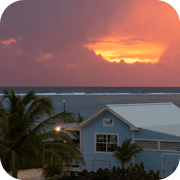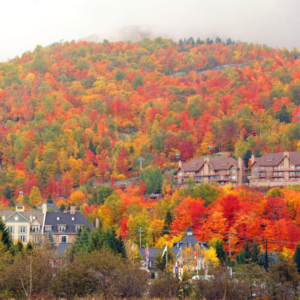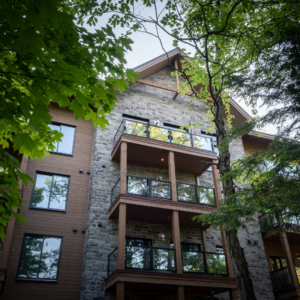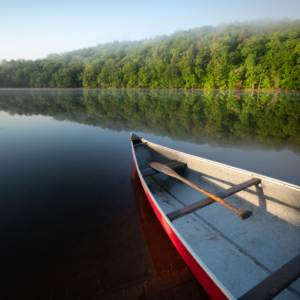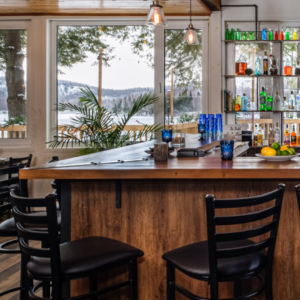10 Fascinating Facts about the Cayman Islands
The Cayman Islands is an enchanting Caribbean destination, offering a captivating blend of natural beauty, vibrant culture, and intriguing history. From its stunning beaches to its unique wildlife and rich heritage, this British Overseas Territory has plenty to offer. Join us as we dive into 10 fun facts about the Cayman Islands that will leave you eager to explore this tropical paradise.
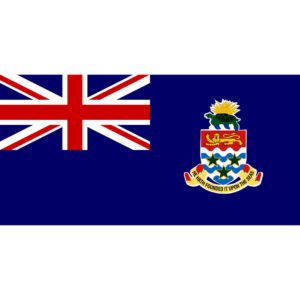
1. The Cayman Islands flag is a symbol of unity and heritage
The Cayman Islands’ flag features a blue background representing the Caribbean Sea and three green stars symbolizing the three islands—Grand Cayman, Cayman Brac, and Little Cayman. The Union Jack in the top left corner represents the islands’ status as a British Overseas Territory, highlighting their historical ties to Great Britain.
Pineapple: Representing our ties with Jamaica
Sea Turtle: Representing our turtling history – if you’re visiting, check out the Turtle Centre
Rope: Representing our rope-making history
Lion: Representing our ties with Great Britain
Stars and Waves: Representing our three islands on the Caribbean Sea
Banner: “He Hath Founded it Upon the Seas”- a Bible verse acknowledging our island’s Christian heritage and ties to the ocean
2. The islands were uninhabited when they were discovered
When Christopher Columbus stumbled upon the Cayman Islands in 1503 during his fourth voyage to the Americas, he found no human inhabitants. The islands were home only to an abundance of wildlife and natural beauty, which amazed the explorers.

3. The population grows drastically during high season
Despite being small in size, the Cayman Islands has a vibrant population. As of the latest estimates, the islands are home to around 65,000 people. During the high season, an increase of tourists more than doubles this number! Over 2 million tourists every year visit these sunny islands and feel right at home.

4. There is duty-free shopping
Shopping enthusiasts will rejoice in the Cayman Islands’ duty-free status. The islands boast a wide range of luxury boutiques, jewelry stores, and specialty shops where you can find high-end brands and unique souvenirs. Take advantage of the duty-free prices and indulge in some guilt-free retail therapy.
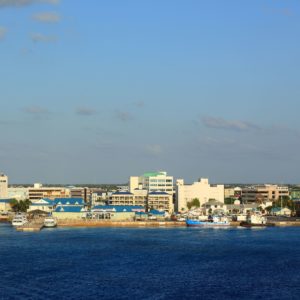
5. The Cayman Islands’ cost of living is high
While the Cayman Islands offers a luxurious lifestyle, it’s important to note that the cost of living is quite high. The islands’ reliance on imported goods and their status as a financial hub contribute to the increased expenses. If you’re a visitor, consider staying at resorts that offer discounted rates – like Morritt’s Resort in East End – and get the most value from your vacation! Click here to grab a discounted stay!
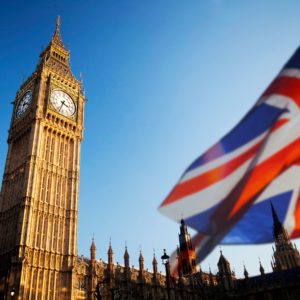
6. It is a British Overseas Territory
As a British Overseas Territory, the Cayman Islands has a constitutional relationship with the United Kingdom. This status provides stability, a strong legal system, and governance based on British principles. The islands’ British heritage is reflected in various aspects of their culture, including architecture and traditions.
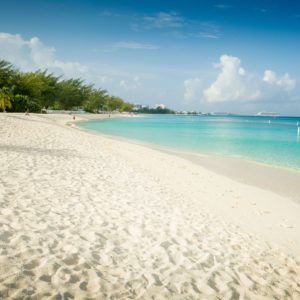
7. Seven Mile Beach isn’t actually seven miles long
One of the most famous beaches in the Caribbean, Seven Mile Beach, stretches along the western coast of Grand Cayman. Contrary to what its name suggests, Seven Mile Beach in the Cayman Islands is not exactly seven miles long. It’s actually a little shorter, stretching approximately 6.3 miles along the western coast of Grand Cayman. Still, it remains an iconic and highly acclaimed beach destination known for its pristine white sands, crystal-clear turquoise waters, and picturesque surroundings.
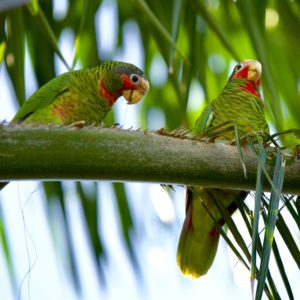
8. It is rich in biodiversity
The Cayman Islands is not only home to stunning beaches but also boasts incredible biodiversity. The islands’ diverse ecosystems support a wide array of wildlife, including the iconic blue iguana. The Blue Iguana Recovery Program, initiated to protect this endangered species, has been successful in preserving and increasing their population. If you want to check out some of our favourite Cayman creatures, check out this blog!
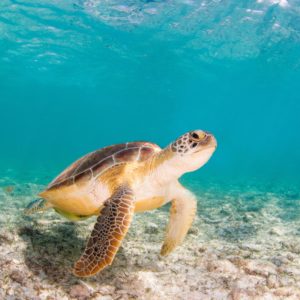
9. Historical Origins: From “Las Tortugas” to the Dry Tortugas Connection
Christopher Columbus originally named the islands “Las Tortugas” due to the abundance of sea turtles. Interestingly, the name “Tortugas” has connections to another group of islands discovered 10 years later — the Dry Tortugas near Key West, Florida. The name “Dry Tortugas” was an indication to other voyagers that there was no fresh water source on these islands.
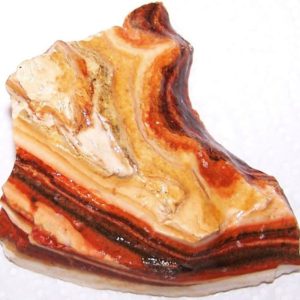
10. There is a unique rock that is only found in the Cayman Islands
Caymanite is a unique and captivating rock that is exclusively found in the Cayman Islands. It is a type of limestone rock known for its vibrant colors and intricate patterns. Caymanite is formed through a natural process that involves the accumulation and compression of coral, shells, and other marine organisms over millions of years.
What makes Caymanite truly remarkable is its stunning array of hues, ranging from earthy reds and browns to vibrant oranges, yellows, and blues. These rich colors are a result of various minerals present in the rock, including iron oxide, manganese oxide, and other trace elements.

